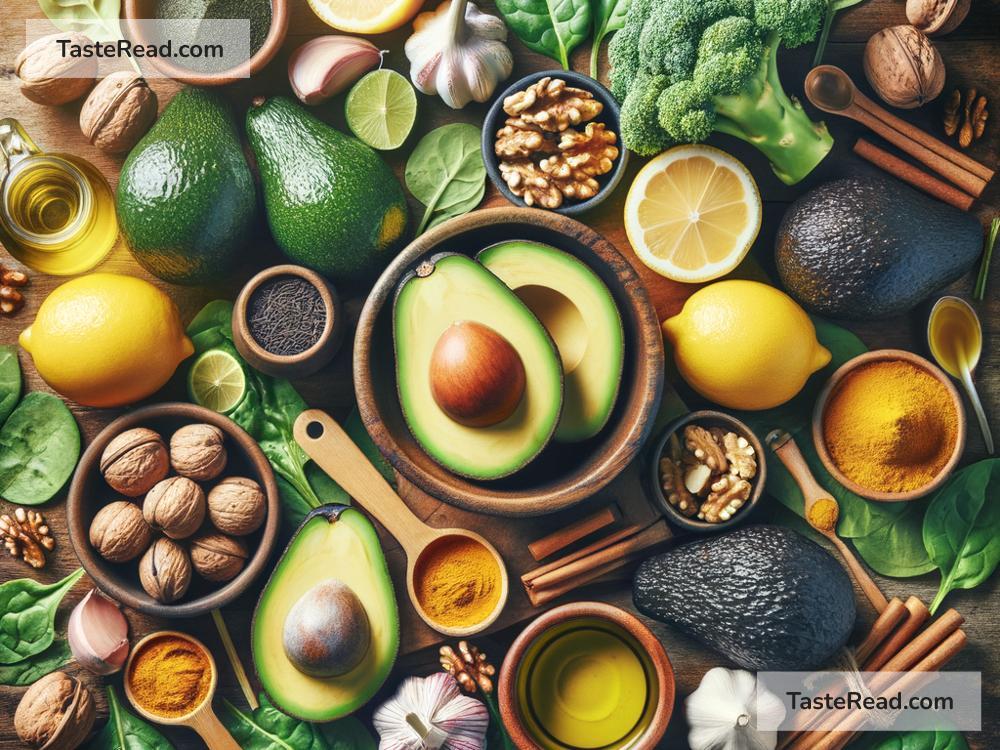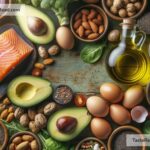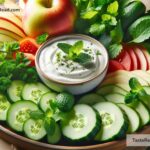Foods That Promote Fat Metabolism and Reduce Risk of Fatty Liver
Many of us aim to improve our health, manage weight, and support our liver function. The phrase “you are what you eat” holds true, especially when it comes to fat metabolism and liver health. The foods we eat can either support a healthy fat-burning process or increase the risk of issues like fatty liver disease. Thankfully, adding the right foods to your diet can make a huge difference! In this blog, we’ll explore foods that promote fat metabolism and those that can reduce the risk of fatty liver – all explained in simple terms.
What is Fat Metabolism?
Fat metabolism refers to your body’s ability to break down and use fat for energy. A well-functioning fat metabolism helps maintain a healthy weight and provides your body with continuous energy. If your fat metabolism is sluggish, stored fat can build up, potentially leading to weight gain and health problems.
What is Fatty Liver?
Fatty liver occurs when excess fat accumulates in your liver. This can happen due to unhealthy eating habits, obesity, or excessive alcohol consumption. A fatty liver can make you feel tired, cause inflammation, or lead to serious health issues like liver damage. Luckily, certain foods can help protect your liver and prevent fatty build-up.
Foods That Promote Fat Metabolism
The following foods help your body use fat more efficiently and may even help you burn excess fat:
1. Green Tea
Green tea is a powerhouse of antioxidants called catechins. These compounds boost your metabolism and help your body burn fat for energy. Drinking green tea regularly can give your system the extra push it needs to promote fat breakdown.
2. Chili Peppers
Love spicy food? Chili peppers contain capsaicin, the compound that gives them their heat. Capsaicin can increase your metabolism and encourage your body to burn stored fat for energy. Adding a little spice to your meals might support your fat-burning efforts.
3. Whole Grains
Whole grains like oats, brown rice, and quinoa are rich in fiber, which helps regulate your blood sugar and keeps you feeling full longer. They make your body work harder during digestion, which in turn burns more calories.
4. Lean Protein
Eating lean protein sources like chicken breast, eggs, fish, tofu, and beans helps build muscles. The more muscle you have, the higher your resting metabolism. Protein also requires more energy to digest compared to fats and carbohydrates, which can promote fat breakdown.
5. Nuts and Seeds
Nuts and seeds such as almonds, walnuts, and chia seeds are packed with healthy fats, fiber, and protein. These nutrients help regulate your metabolism and support healthy fat-burning. However, remember to eat them in moderation, as they are calorie-dense.
6. Coffee
A cup of coffee can give your metabolism a temporary boost. The caffeine in coffee stimulates the central nervous system, helping you burn more fat. Opt for black coffee without sugar for the best results.
7. Apple Cider Vinegar
Apple cider vinegar contains acetic acid, which some studies suggest may help improve fat metabolism. Drinking diluted apple cider vinegar before meals may support weight loss efforts, but consume it sparingly to protect your teeth and stomach.
Foods That Reduce Risk of Fatty Liver
These foods play an important role in protecting your liver from fat build-up and supporting overall liver health:
1. Leafy Green Vegetables
Spinach, kale, and other leafy greens are rich in antioxidants and low in calories. They help protect your liver from damage caused by oxidative stress and can reduce fat storage in the liver.
2. Avocados
Avocados contain healthy fats and powerful antioxidants. They promote liver health by reducing inflammation and improving blood cholesterol levels. They are also a great substitute for unhealthy fats like butter.
3. Garlic
Garlic is not only flavorful but also beneficial for liver health. It contains compounds that help activate liver enzymes, which assist in flushing out toxins and reducing fat accumulation.
4. Fatty Fish
Fish like salmon, mackerel, and sardines are high in omega-3 fatty acids, which reduce inflammation and prevent fat from building up in the liver. Omega-3s also improve insulin sensitivity, which is helpful for overall metabolism.
5. Berries
Berries such as blueberries, strawberries, and raspberries are loaded with antioxidants that protect your liver from damage and inflammation. They can also help reduce the risk of fatty liver by promoting healthy liver function.
6. Nuts
As mentioned earlier, nuts like almonds and walnuts contain healthy fats. In addition to boosting metabolism, they can improve liver health by reducing fat buildup and supporting liver function.
7. Olive Oil
Olive oil is a great source of healthy fats and antioxidants that help reduce liver inflammation and protect against fat accumulation. It’s one of the best oils for cooking or drizzling over salads.
Lifestyle Tips for Metabolism and Liver Health
While these foods can make a big difference, they’re most effective when paired with healthy habits. Exercise regularly to boost your metabolism and improve liver health. Avoid sugary and processed foods, as they contribute to fat storage in the liver. Drink plenty of water to help your liver flush out toxins, and limit alcohol consumption.
Conclusion
Your diet plays a crucial role in how your body breaks down fat and protects your liver. Adding foods that support fat metabolism and reduce the risk of fatty liver to your meals can lead to better energy levels, improved weight management, and overall health. Focus on eating whole, nutrient-rich foods and making healthier choices every day. Small changes can lead to big results over time. Take care of your body – it’s the only place you have to live!


